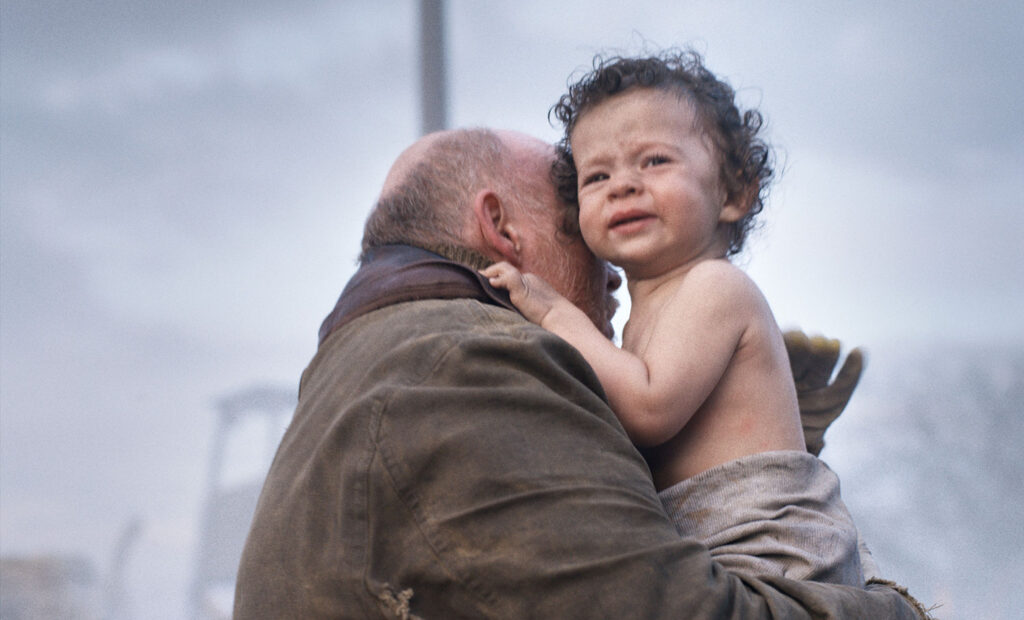Evolution

Kornél Mundruczó’s latest film Evolution is a poetic, thought-provoking look at identity and the nature of storytelling. Using three single-take vignettes, the tale of a Hungarian Jewish family is woven across decades and generations, beginning with a fantastical recollection of the Second World War and ending in modern-day Berlin. Through this collection of characters the film tackles prejudice and memory, projecting an insightful and ultimately hopeful view of the future.
Perhaps the film’s greatest strength is its script, which the director co-penned with his wife and long-term collaborator Kata Wéber. With an abundance of witty dialogue and striking moments of poignancy, the script moves seamlessly from intense confrontation to reflective silence, producing an absorbing watch. The characters feel almost tangible, as if they have been ripped from reality. This is almost certainly due to the fact that this is the screenwriters’ personal project, but also owes to the depth of characterisation that is displayed.
The visuals are similarly entrancing – particularly in the opening scene, which is almost entirely dialogue-free. Fans of Mundruczó’s will remember the stunning imagery in the opening 24 minutes of his last project Pieces of a Woman. Whilst this latest feature begins with less graphic detail, it portrays a poetic tendency whilst maintaining the intensity found in his previous piece. Blending stark actuality with a touch of magical realism, the film pulls into the action, where moments of stillness are allowed before the scene explodes back into life. The camerawork is stunning across the board and even in moments where the excellent dialogue takes centre-stage, the cinematography remains mesmerising.
Evolution eventually becomes a commentary on how trauma is passed down. Evolution is structured into individual chapters, each becoming increasingly realistic, and portrays the history of this family as somewhat folkloric but still grounded in absolute, biting authenticity. It captures the theme of identity and portrays how, despite the strides made since the cataclysmic events of the war, anti-semitism is still a pervasive issue. The grim darkness of the past is portrayed in a dreamlike fashion, but it paints the same picture and tackles present problems, as the focus shifts towards the real.
However, it is an optimistic film and it must be said that as the final moments play out, the audience is reminded of humanity’s incredible ability to find common ground and to love one another despite their differences.
Joe Milo
Evolution does not have a UK release date yet.
Read more reviews from our Cannes Film Festival 2021 coverage here.
For further information about the event visit the Cannes Film Festival website here.
























Facebook
Twitter
Instagram
YouTube
RSS